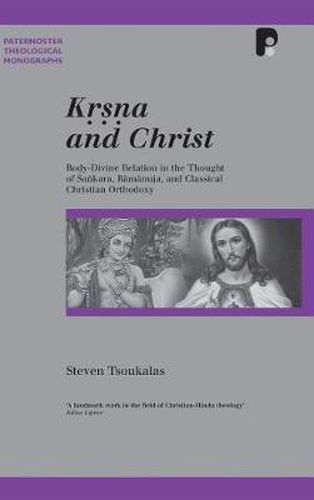Readings Newsletter
Become a Readings Member to make your shopping experience even easier.
Sign in or sign up for free!
You’re not far away from qualifying for FREE standard shipping within Australia
You’ve qualified for FREE standard shipping within Australia
The cart is loading…






This work compares the Krsnavatara (Krsna in his avatara doctrines of Sankara and Ramanuja and the incarnation of Christ as represented by classical Christian orthodoxy, and draws out comparative theological and soteriological implications. It does so first by examining the epistemologies, theologies and world views of Sankara and Ramanuja, and the theology and world view of classical Christian orthodoxy, so that, second, an adequate foundation and subsequent thorough representation of avatara and incarnation might be accomplished, in order that, third, accurate comparisons may be drawn between avatara and incarnation. The result of this study is a demonstration that many of the popularly held similarities between avatara and incarnation are superficial, and that therefore careful consideration of epistemologies and ontologies should be undertaken when comparing theologies and soteriologies pertinent to avatara and incarnation.
$9.00 standard shipping within Australia
FREE standard shipping within Australia for orders over $100.00
Express & International shipping calculated at checkout
This work compares the Krsnavatara (Krsna in his avatara doctrines of Sankara and Ramanuja and the incarnation of Christ as represented by classical Christian orthodoxy, and draws out comparative theological and soteriological implications. It does so first by examining the epistemologies, theologies and world views of Sankara and Ramanuja, and the theology and world view of classical Christian orthodoxy, so that, second, an adequate foundation and subsequent thorough representation of avatara and incarnation might be accomplished, in order that, third, accurate comparisons may be drawn between avatara and incarnation. The result of this study is a demonstration that many of the popularly held similarities between avatara and incarnation are superficial, and that therefore careful consideration of epistemologies and ontologies should be undertaken when comparing theologies and soteriologies pertinent to avatara and incarnation.